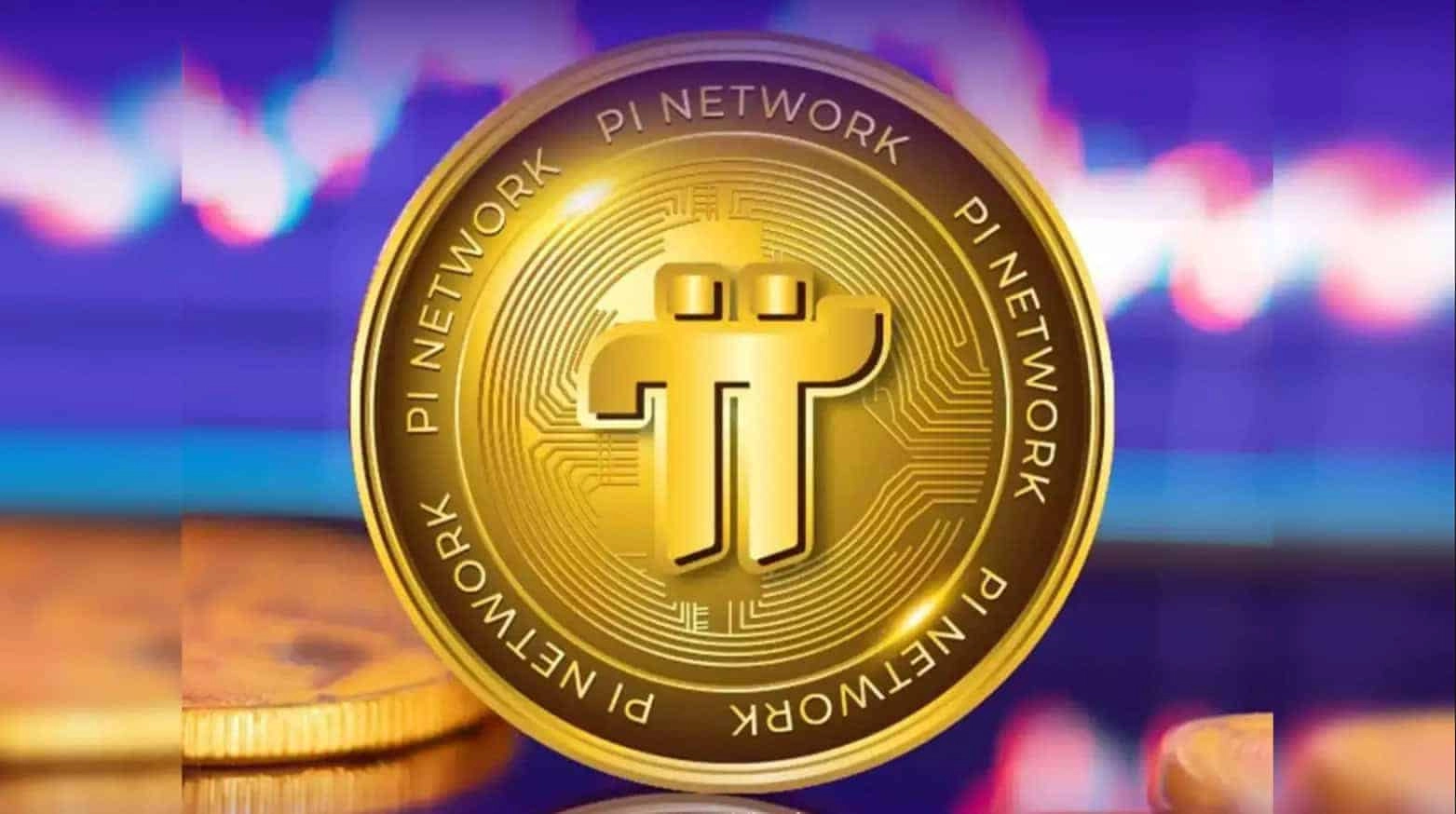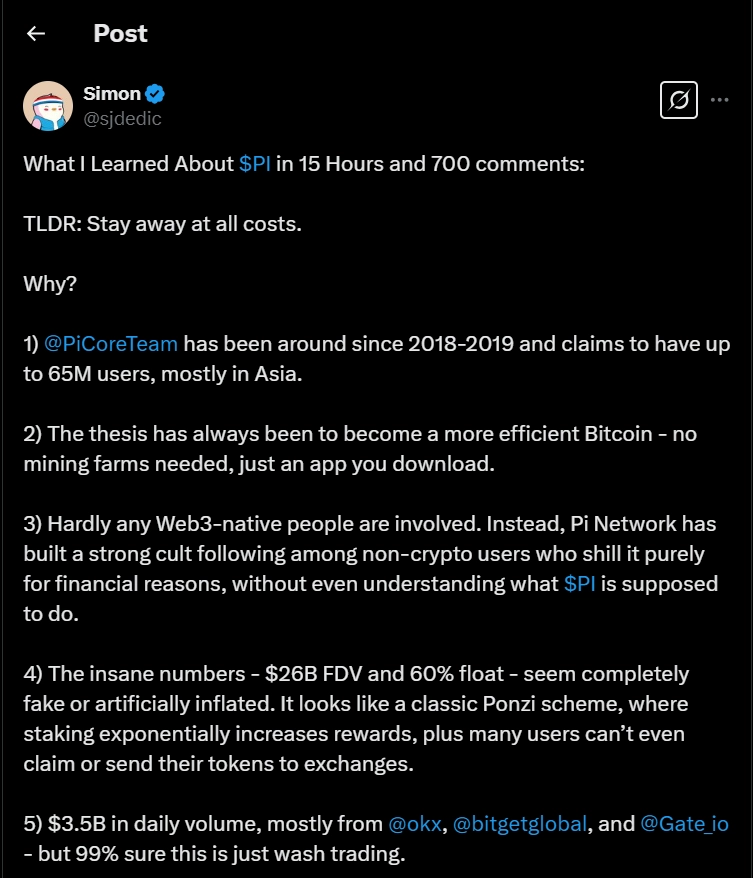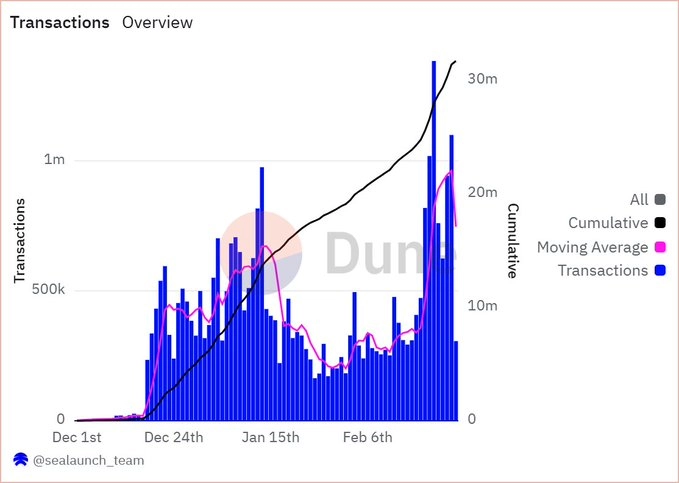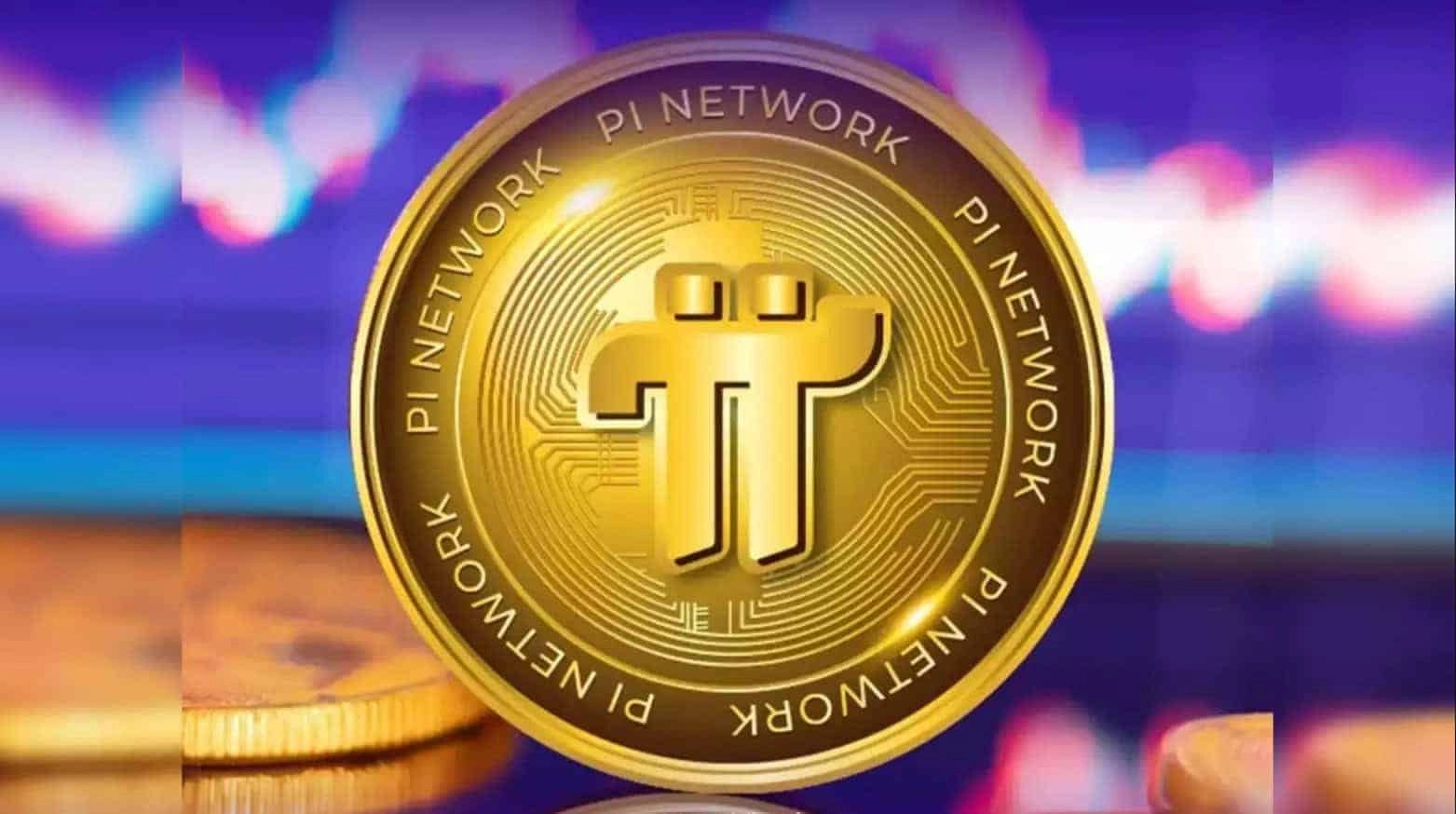You are here: Home / News / Moonrock Capital CEO Raises Alarm Over Pi Network’s Trading Volume and Manipulation

- Pi Network claims 65M users, but faces wash trading and Ponzi scheme allegations.
- Pi’s $26B valuation and 60% float raise doubts about its legitimacy and market activity.
- Legal investigations and skepticism surround Pi Network’s trading practices and exchanges.
Since its initial release in 2018-2019, Pi Network has gained over 65 million users, but various industry leaders are now questioning its validity. The broad acceptance of the project has not eliminated doubts about how the operation functions and how money flows within the system. CEO Simon Dedic from Moonrock Capital has specifically criticized the reported trading volume numbers of the network for being unverifiable. Dedic critiques the Network’s claims about wash trading practices and market manipulation activities.
 Source: X
Source: X
Allegations of Wash Trading and Market Manipulation
The exchange platforms OKX, Bitget and Gate.io display considerable trading activity for Pi Network. According to Dedic, many reported transactions involved wash trading, attributing traders to keep buying and selling their own tokens to inflate market activity metrics. Dedic challenges Pi Network’s $3.5 billion daily trading volume since the majority of this volume occurs through only a few exchanges.
Experts doubt the credibility of Pi Network’s $26 billion fully diluted value (FDV) measurement because it seems too artificially high. Users face extreme difficulties in both claiming and transferring their tokens through exchanges, thereby leading experts to doubt the token’s genuine liquidity. Despite attracting attention because of its 60% float duration, the project features characteristics that resemble Ponzi schemes.
Ongoing Scrutiny and Legal Concerns
Concerns about the Pi Network date back to its inception. A 2023 report issued by the Chinese police authorities labels Pi Network as a fraudulent scheme that primarily targets elderly and vulnerable individuals. This report, shared by Bybit CEO Ben Zhou, has raised alarms about the project’s operations. A recent discovery about the project and mounting concerns have further shaped doubts about its legitimacy.
 Source: X
Source: X
Critics view the usage of unapproved crypto exchanges that list Pi tokens as evidence of low credibility compared to reputed exchanges such as Binance and Coinbase. The platforms supporting projects follow stringent verification processes to guarantee project quality standards, yet Pi Network has not yet completed this process.
The acceptance of Pi Network remains restricted although some businesses in Florida have begun to accept Pi Coin transactions but legal experts continue to warn about investing risks. The Vietnam Cybercrime Unit started its investigation of Pi Network two years ago because of ongoing doubts regarding the project’s activities and its suspected role in criminal schemes. Some proponents endorse the cryptocurrency adoption approach maintained by Pi because they believe it presents a fresh way to include users who have no experience with cryptocurrencies.




